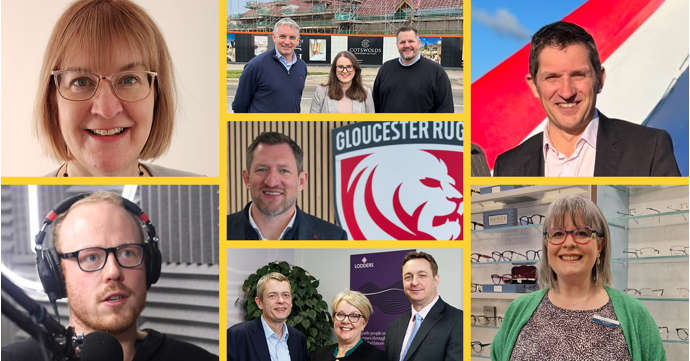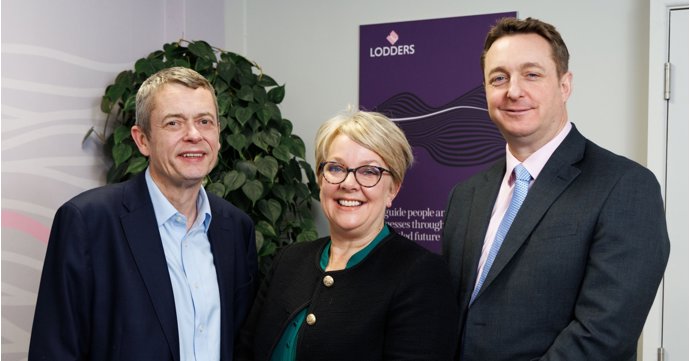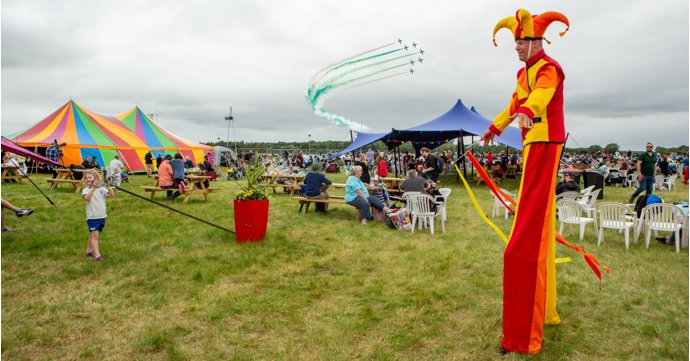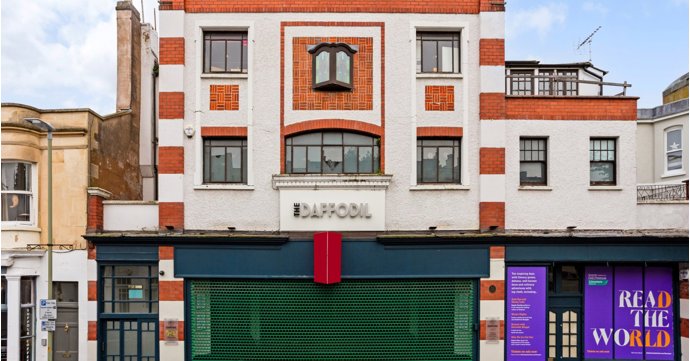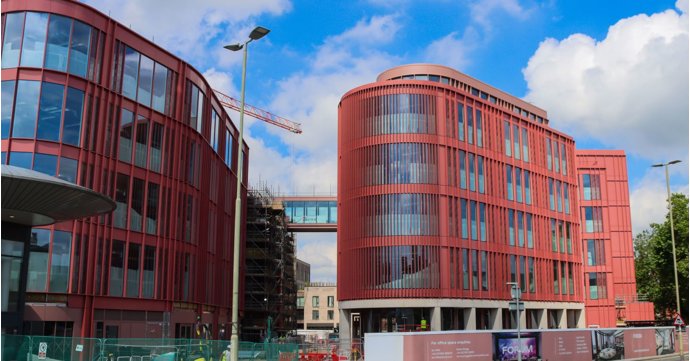Becoming the youngest managing partner in Lodders Solicitors' extraordinary 240-year history at the age of just 39, Paul Mourton doesn't do things by halves — and thrives on a challenge.
Six years on from his promotion to the top, Gloucestershire born and bred Paul reflects on his 16 years at one of the region's leading law firms and chats about his highlights, setting up the Cheltenham office 10 years ago and how Lodders is future-proofing itself through AI and sustainability strategies.
In your time at Lodders, what are the biggest changes you've seen?
Over 16 years the firm has grown significantly. I joined in the middle of 2008, which was just as the UK was on the precipice of the financial crisis. At that time, Lodders had just two offices, in Stratford and Henley in Arden. But since then, we've opened in Cheltenham and more latterly, in Birmingham.
In 2008, we employed around 90 people and had a turnover of £7 million — today we have around 200 people and a turnover of approximately £20 million across the four offices.
In Cheltenham, we opened in 2013 with just three people in a small office on Imperial Square — over 10 years on, we now have 30 staff members and a much bigger premises on Montpellier Parade.
The firm has been going for 240 years and originally primarily acted for private landowners — but we've since evolved and now offer the full breadth of legal services, acting for private individuals and privately owned businesses; corporates, property and agricultural and rural businesses.
I
think the biggest change, though, has come from the pandemic — it really has changed how everything and
everybody works and operates. But we dealt with it very successfully and have continued to grow year on year. We've employed and
embraced hybrid working and that works very effectively for
us.
Have there been any challenges in that time and how did you overcome them?
There have been many challenges! Namely, the pandemic, but also the deterioration in the geopolitical situation around the world; and the political landscape in the UK. We've had a very long period of uncertainty within the country and the economy has stagnated. And that means people, individuals and businesses are reluctant to invest. In a thriving economy, people are doing deals and buying and selling companies, and buying and selling land. So that's been a challenge.
But when I took over as managing partner six years ago, one of the first things I introduced was a three-year strategic plan; and now we have them on three-year cycles. One of the objectives within that was to spread the risk of our service lines and practice areas, so that we could cope with and be flexible to downturns in the economy — that's worked very well and we're now seeing the benefits of this approach.
Another challenge has been what I call 'the war for talent'. We are committed to recruiting quality people, both lawyers and non-lawyers, to the firm and this sets us apart from the competition. Hybrid working has enabled us to look further afield for recruitment, too.
In the last 12 months we've brought together a completely new people team with a new director of people and culture. We're recruiting our own trainees to grow our own talent from within and we've been very successful in bringing in senior lateral hires, too.
Are there any highlights from the last 10 years in Cheltenham you’d like to shout about?
I think the first highlight must be outgrowing our first office in Imperial Square very quickly. Breaking into the Cheltenham business scene so quickly and successfully was very satisfying too, if not a little surprising! There were about 70 law firms in Cheltenham at the time and so we recruited many people from local firms, some of whom are still here today. There is a big pool of law talent in Gloucestershire.
To be instructed by leading Gloucestershire businesses, who would have been the preserve of the more long-established locals firms, is a real highlight.
A personal highlight for me was being appointed managing partner, but also being successful in Cheltenham, too, especially being a local boy growing up here. My dad was the managing partner at Hazlewoods, and he was quite a well-known character in the local business community, so for me to go out and do it by myself was a great personal achievement.
Is Lodders known for any particular specialisms?
As well as our established private client offering, we're known for acting for developers, landowners and agricultural businesses. In the last four or five years we've acted for a lot of clients on environmental law and biodiversity net gain — this is very relevant to developments, particularly residential developments where developers must comply with stringent environmental requirements to secure planning consent. We advise a lot of the very large house builders in those areas.
What are your plans for the next 10 years?
To continue with our successful strategic growth across all areas of the firm to ensure we are best placed to thrive as well as being able to cope with uncertainty and other unknowns that could be thrown in our direction. We will continue to actively attract and retain the best talent, in terms of lawyers and other members of staff, to set us apart. In my first strategic plan as managing partner, I wrote that our strategic aim was to be the pre-eminent private wealth law firm in the Midlands and the south west; and that still remains the goal today.
We're also very committed to the environmental and social governance (ESG) agenda. We have an environmental group within the firm, and we're actively trying to reduce our carbon footprint and improve sustainability. None of our waste goes to landfill, and our suppliers are under contractual obligation in that regard, too. We also offer car sharing and an EV car salary sacrifice scheme for our staff.
My big push is embracing AI — innovating and incorporating it into our daily lives in a responsible and ethical way to make the delivery of legal services more effective for our clients. We are already using AI in certain areas of the firm.
What do you think are the most exciting things happening in Gloucestershire at the moment?
I am hugely excited about what's going on with the A417 missing link — it's a massive construction and civil engineering project that I don't think anybody could have ever imagined the scale of. It will bring huge benefits to the county, with inward investment and greater mobility of trade and business. This project has been a long time coming.
The other big thing is the cyber park next to GCHQ. This will put Cheltenham further on the map as one of only two places in the world that is pioneering cyber research and development within cyber security.
Are there any future property and construction plans in the county we should keep an eye on?
The upgrading of junction 10 of the M5 to be made into a four-way junction, rather than two; and to facilitate all of that, the development of the land to the west of Cheltenham through to Swindon Village and beyond.




